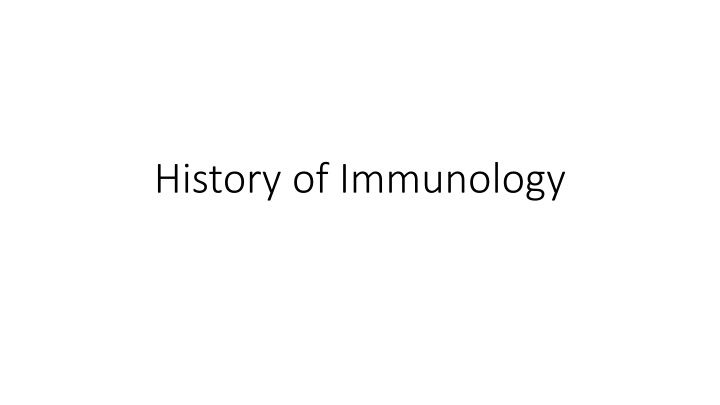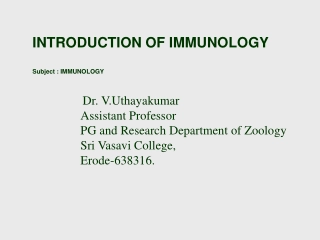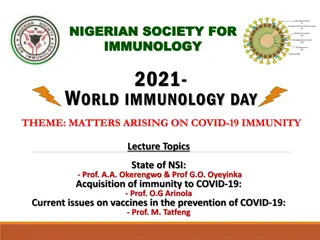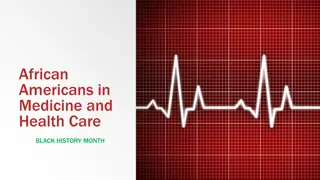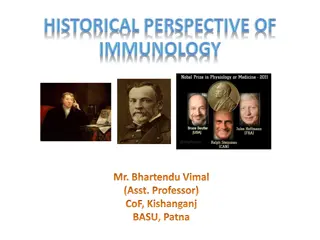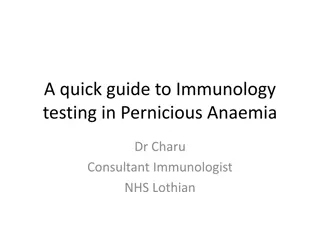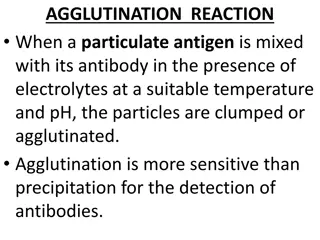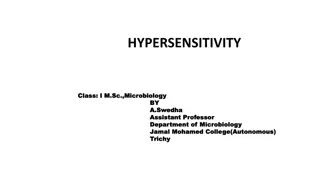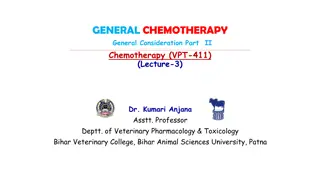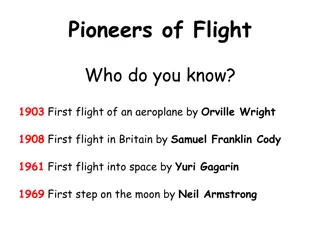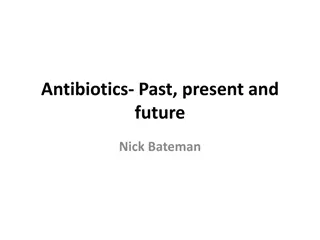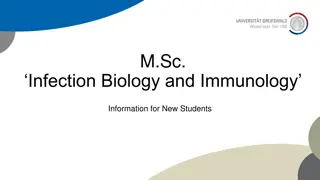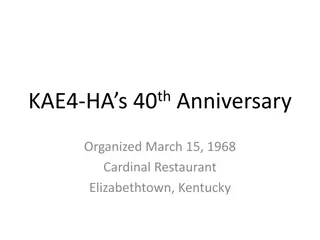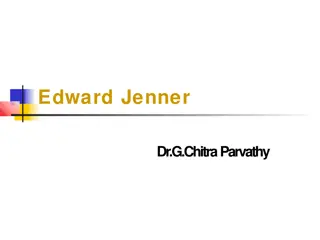Pioneers of Immunology: Jenner, Ehrlich, and Metchnikoff
Edward Jenner initiated the concept of vaccination by discovering that cowpox could confer immunity to smallpox. Paul Ehrlich differentiated blood cells, proposed the side chain hypothesis, and pioneered serum therapy and chemotherapy. Elie Metchnikoff developed the cellular theory of immunity, advocating probiotics for natural immunity. These three figures made significant contributions to the field of immunology.
Download Presentation

Please find below an Image/Link to download the presentation.
The content on the website is provided AS IS for your information and personal use only. It may not be sold, licensed, or shared on other websites without obtaining consent from the author.If you encounter any issues during the download, it is possible that the publisher has removed the file from their server.
You are allowed to download the files provided on this website for personal or commercial use, subject to the condition that they are used lawfully. All files are the property of their respective owners.
The content on the website is provided AS IS for your information and personal use only. It may not be sold, licensed, or shared on other websites without obtaining consent from the author.
E N D
Presentation Transcript
Edward Jenner 1798- Edward Jenner, noticed that milkmaids were protected from smallpox if they had been first infected with cowpox Inoculation with cowpox (a bovine analogue of smallpox) could confer immunity to smallpox. Thus, the concept of vaccination was initiated. (Incidentally, the Latin word for cow is vacca ). Developed the concept of vaccination by immunizing an eight-year-old boy against smallpox using cowpox fluid. He later injected smallpox virus repeatedly into the boy, proving that he was indeed immune He demonstrated that the protective cowpox pus could be effectively inoculated from person to person, not just directly from cattle- reported finding on 23 subjects Father of Immunology A member of the Royal Society, in the field of zoology he was among the first modern scholars to describe the brood parasitism of the cuckoo-the area to perform this task. Jenner's findings were published in Philosophical Transactions of the Royal Society in 1788
Paul Ehrlich (1854-1915) 1877.Recognizes mast cells 1900. Foundation of hemotology- differentiated different types of blood cells by developing staining protocols Published 37 scientific contribtions Side Chain hypothesis: recognized that a specific antigen elicited the production of a specific antibody . Ehrlich hypothesized that these antibodies were specialized molecular structures with specific receptor sites that fit each pathogen like a lock and key. Transfer of blood serum with antibodies to treat and counter Diphtheria baciilus (Ehrlich and Emil von Behring) 1892. Breast milk contains antibodies passed from mother to newborn. he realized that this powerful effector mechanism, used in host defense would, if turned against the host, cause severe tissue damage. Ehrlich termed this horror autotoxicus. Pioneered Serum Therapy with blood of live horses 1904. Father of Chemotherapy Discover chemotherapy- effects of methylene blue on malaria Plasmodia and so first searched for drugs against parasite, he also used trypan red on African trypanosomes Tested drug against Syphilis- Drug 606 or Savarsan- successfully sold all over the world (Ehrlich and Hata)- magic bullet 1908. Nobel Prize in Physiology or Medicine with Mechnikov
Elie Metchnikoff (1845-1916) 1883. Developed the cellular theory of vaccination 1884: His field was zoology and he studied phagocytosis in single cell organisms such as starfish larva. 1892. Metchnikoff postulated that vertebrates could operate in a similar manner to remove pathogens- Cellular (phagocytic)theory of immunity Advocate of consumption of lactic acid bacteira- probiotics Father of natural immunity 1908. Nobel Prize in Physiology or Medicine with Paul Ehrlich
